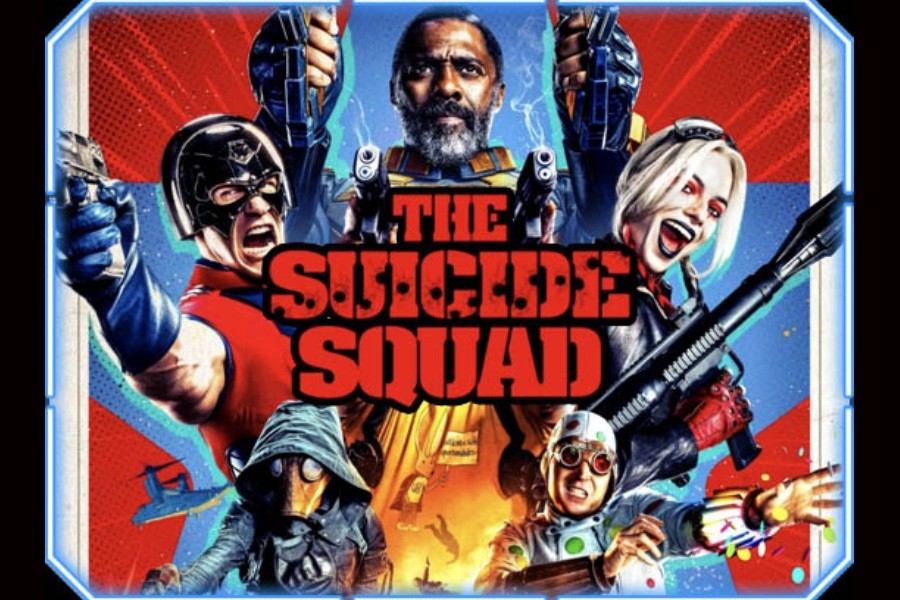The Suicide Squad: James Gunn’s cinematic poetry of violence and humour

Published :
Updated :

The Suicide Squad, directed and written by James Gunn from Guardians of the Galaxy- is a rugged, rib-tickling and impressively astute supervillain romp that is less of a sequel and more of a sorely needed 2021 remake of the 2016 original.
When it comes to important and critical themes, this quirky comic book film takes potshots at them all. It rails against US foreign policy, Western imperialism and government manipulation while calling out foreign interference in domestic affairs.
One of the most impressive aspects of the first film was the casting, and the same can be said for this one. Only a few of the characters from the previous film take the jump to this one. In addition to Davis, Joel Kinnaman, Jai Courtney, and Margot Robbie reprising their roles from the previous film.
The film’s opening sequence presents the core of the Suicide Squad’s raison d’etre (reason for being) which cancels out the need of watching the first film to relish this one.
The plot, as in the first film, revolves around a group of comic book convicts who possess sketchy superpowers and are pressed into service by black ops megalomaniac Amanda Waller. Another mission pops up: to infiltrate a South American island and depose a newly installed military junta, as well as to deactivate an unidentified superweapon of unknown origin.
The squad's leader-Bloodsport (Idris Elba) is of the reluctant variety. John Cena portrays Peacemaker, a violent reimagining of Captain America. Along with these two arsenal-wielding warriors, we have the goofy rat-controlling power possessor Ratcatcher 2 (Daniela Melchior), the profoundly troubled Polka-Dot Man (David Dastmalchian), and the strangely loveable, perpetually voracious King Shark (Sylvester Stallone).
It's an incredible gathering of vagabonds and misfits. Bloodsport is the squad's heart, dressed as an antihero, a man of honour even if he refuses to admit it. In many ways, Peacemaker is his carbon copy; however, he is a fanatically patriotic clown and a violent killer with no moral compass.
Ratcatcher 2, the daughter of the original Ratcatcher, serves as the moral core of the squad and is the only character who genuinely cherishes friendship, love, and compassion above all other things. Her power to control rats appears to be ridiculous at first, but it turns out to be more useful—and elegant—than we realise.
The bond she develops with Bloodsport and King Shark is noteworthy. King Shark, on the other hand, is there to provide comic relief with his huge, starving snuggly toddler personality. Polka Dot Man's ridiculous abilities are reinterpreted as utterly weird body horror, channelling a tortured psychological trauma that adds credence to the absurd character.
Colonel Flag and Harley Quinn are the other two main heroes. Unfortunately for them, they do not join the rest of the team until much later in the film due to misadventure and bad luck.
Flag plays a larger role in this film, which allows Kinnaman to flex his muscles a little more this time around. President Luna becomes captivated by Quinn, and the story of her life becomes a literal Cinderella story—if Cinderella were a psychotic, insanely unpredictable psychopath like Harley Quinn.
From indie sweethearts Pixies and the Decemberists to classic rock deities Kansas to a human being with dreams and aspirations and a family, apparently, whose head is ripped off and played with by King Shark, The Suicide Squad is bursting with alluring tunes and repulsive monstrous violence that welcomes viewers on a journey of desire to sing along and produces butterflies in their stomachs.
The writer is a student of International Relations at the Bangladesh University of Professionals.
sadianaharsiam@gmail.com


 For all latest news, follow The Financial Express Google News channel.
For all latest news, follow The Financial Express Google News channel.